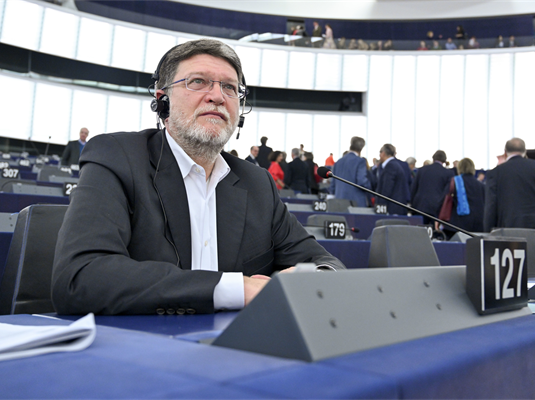"The most famous protected Croatian sites, such as Old Town of Dubrovnik, Diocletian's Palace and the Cathedral of St. Jacobs are at risk of sinking due to global warming", warned Croatian MEP Tonino Picula, today during a plenary session in the European Parliament.
Speaking on the European Union's response to extreme meteorological events and their impact on the protection of Europe's urban areas and cultural heritage, Picula stressed that, according to publicly available data, the sinking threatens 37 places in the Mediterranean, including listed Croatian cities, and 42 sites are at risk from erosion.
"It is high time we declared the climate crisis and urgently adopt and implement measures to reverse global warming trends" he said.
According to international climate modeling results, the Mediterranean basin is designated as a climate “hot spot” with particularly pronounced effects of climate change. According to a report by the European Environment Agency (EEA), Croatia is among the three European countries with the highest cumulative share of damage from extreme weather and climate events in relation to gross national product, which is a huge threat to our economy, which is unfortunately in a high percentage dependent on tourism and agriculture revenues, which account for up to a quarter of GDP. According to the EEA, damage from extreme climatic events to Croatia amounted to about 2.25 billion euros from 1980 to 2013, or about 68 million euros annually.
The transition of European islands to renewable energy sources, whose pilot projects are funded by the European Commission's Secretariat for the Islands, and which include ten Croatian islands, is a good sign of what to do to slow global warming trends and reverse them in the long term, Picula points out.
For Europe as a whole, but especially for Croatia, it is of utmost importance to reduce the acute vulnerability of the agriculture, forestry, fisheries, energy and tourism sectors, since their success depends significantly on climatic conditions. In order to facilitate and compensate for the transition to renewable energies for those most affected by the transition, the European Parliament proposed in its interim report on the Multiannual Financial Framework 2021-2027 that a special fund of EUR 4.8 billion be introduced. The aim of the fund would be to address social, socio-economic and environmental impacts on workers and communities during the transition.
"In addition to cultural heritage, our citizens will also be directly endangered because as many as a third of EU residents live along the coast, up to 50 km from the coast. The priceless cultural heritage has resisted the historical challenges of hundreds and thousands of years, let us not allow it to be destroyed by the climate change we caused ourselves", Picula concludes.
See his speech on the link.


